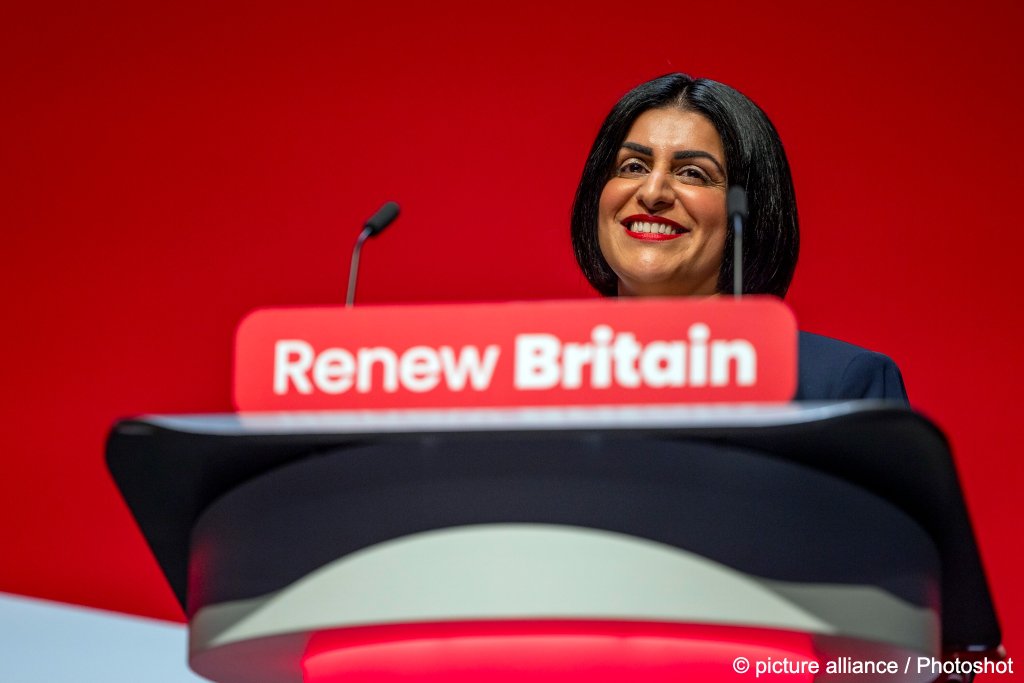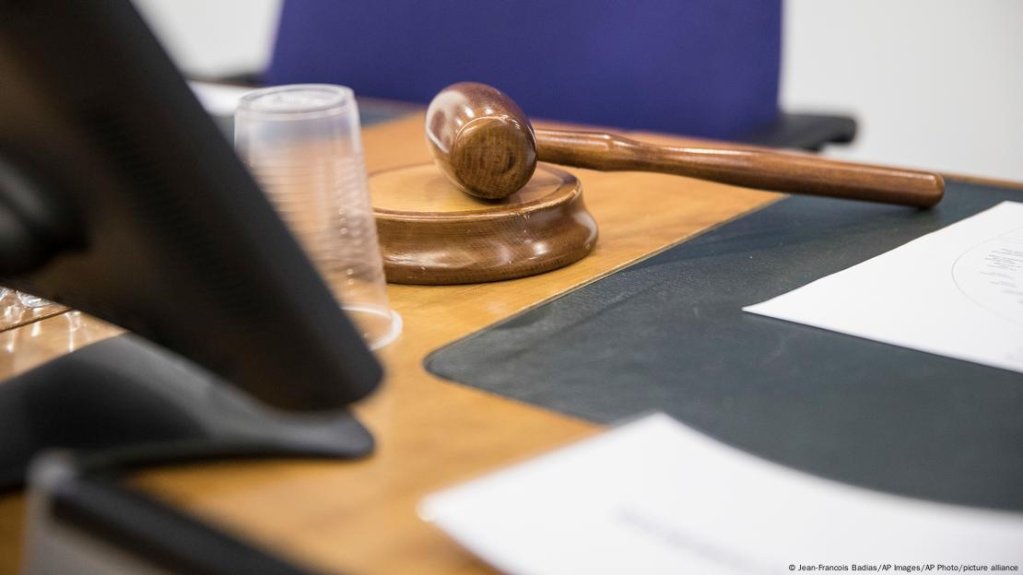As part of a slew of proposed changes, British Prime Minister Keir Starmer has said that refugees will have to "earn" their right to longterm residency in the UK. Starmer also said earlier in the week that comprehensive reforms and changes to legal interpretations were needed as Britain continued to face a "battle for the soul of the country."
Prime Minister Starmer's government plans to introduce multiple changes to the UK's overall immigration system amid mounting calls from the public to clamp down on irregular migration and growing pressure from the far-right.
He told the BBC in an interview this week that "the current system is not fit for purpose," saying that this "is why we're making fundamental changes to what those granted asylum are afforded in the UK."
The prime minister announced that among other things, new laws would be introduced to change the prerequisites for long-term settlement in the UK as well as ending the automatic right to family reunification even for successful asylum seekers.

New applications for family reunification were suspended in Britain last month.
British Home Secretary Shabana Mahmood will reportedly set out details about these reforms in full in the coming weeks.
Starmer meanwhile was due to share further details about the changes after a meeting of European leaders in Copenhagen but had to return to the UK earlier than planned after an assumed terror attack in Manchester claimed two victims.
Read AlsoAsylum seekers in the UK scapegoated amid economic precarity
No 'golden ticket' to Britain
Starmer had stressed earlier that the UK would continue to welcome "genuine refugees fleeing persecution," adding firmly however that there would be "no golden ticket to settling in the UK."
Under the proposed changes, refugees will still be entitled to "core protection" in Britain and will not be returned home, but the prime minister emphasized that even legitimate refugees will face a longer route to full resettlement in Britain, adding that "people will have to earn it."
"I believe that if you want to come to the UK, you should contribute to our society."
Currently, people granted protection in the UK qualify for permanent residency typically after five years, also known as indefinite leave to remain.
The government had previously said that it ws planning to double the number of qualifying years for permanent residence to ten.
Read AlsoMigrants continue crossing Channel, despite new policies in place
Employment, community work and Shakespeare
British Home Secretary Mahmood already announced during the Labour Party conference earlier in the week that tougher conditions would be introduced to secure indefinite leave to remain across the board.
While details about the proposed changes are scarce for the moment, what is known is that people will need to be in work and not on government benefits to qualify for permanent residency, have a strong command of the English language, in addition to having no criminal history.
Mahmood also mentioned undertaking volunteer community work as a potential way of qualifying for indefinite leave.

Read AlsoUK announces tougher requirements for migrant settlement
Record arrival and applicant numbers
Starmer was also due to announce a new partnership to be launched to help tackle migration in the Balkan countries, which many migrants pass through on their way across Europe.
The plan, valued at 3.4 million euros, will focus on encouraging people to stay in the region and take up jobs there.
Read AlsoChannel crossings: Investigation uncovers elaborate supply route across Turkey, Germany and France
Starmer said that more is needed to be done by the government to address the "pull factors" driving illegal small boat crossings from across the English Channel — with Britain set to break all previous records on arrival numbers this year.
More than 32,000 migrants have made the dangerous crossing from northern France so far this year, with at least 27 people dying during attempts, according to French authorities.
Meanwhile, over 111,000 people applied for asylum in the UK in the first six months of 2025 — the highest-ever number of applications since the Home Office began keeping records in 2001.
Read AlsoOver 1,000 migrants cross Channel in small boats over two days
Sharp criticism against changes
But the tabled changes have been met with criticism by rights bodies, including the Refugee Council, who warned that stopping families from reuniting would push more people to come to the UK using smugglers.
Jon Featonby, chief policy analyst at the Refugee Council, said: "These unworkable policies have been promised before and we know that they do not have any impact on the number of small boats."
Featonby added that family reunification visas were overwhelmingly requested by women and children, highlighting that any curtailments to the present policy would end up "forcing children to grow up without their parents" while "damaging integration, making refugees feel unsafe."
Akiko Hart, director of rights organization Liberty, went further, warning that Starmer's overall approach risked "setting us on a path to undermining the rights of every person in Britain."
Read AlsoUK report: Only safe, legal routes can break smugglers' model
Opposition labels reforms as 'gimmick'
Shadow home secretary Chris Philp from the Conservative Party referred to the proposed changes as a "gimmick" and said that Starmer should instead repeal Britain's Human Rights Act as far as it relates to immigration matters.
The Human Rights Act involves a series of laws that were introduced in 1998 to bring the UK in line with European law.
Signatories to the European Convention on Human Rights have to adapt their laws accordingly. Britain is still a signatory and also based its own human rights law on those principles. However, since Britain's departure from the bloc — commonly known as "Brexit" — as a non-EU member state, Britain could now leave the European Convention on Human Rights too if it wanted to. It is something that Starmer previously ruled out but changes to the interpretation of some of those laws is now something the Labour party does appear to be considering.
Still, any changes — such as the Conservative Party's idea to depart from the migration aspects of the Human Rights Act — would need to pass through both houses of Parliament.

Starmer, who is a human rights lawyer by profession, said on Wednesday that the government would review how UK courts interpret the Human Rights Act and explore any potential leeway to curb current immigration levels and possibly deport more migrants but stopped short of saying that elements of the law could in future be scrapped.
Government sources provided examples to the BBC of cases where convicted migrant criminals had successfully used the current laws to argue that they couldn't be deported to their home country, because the material conditions might be substantially worse there than in Britain. In future, argues the government, such a broad interpretation of those rights might no longer be possible. However, Starmer remains cautious.
"I'm not going to tear all that down," he told the BBC in an interview. "We need to look again at the interpretation of some of these provisions, and we've already begun to do that work in some of our domestic legislation."
Read AlsoUK: Government calls for reform of European human rights convention to help manage migration
with dpa, AFP, Reuters
